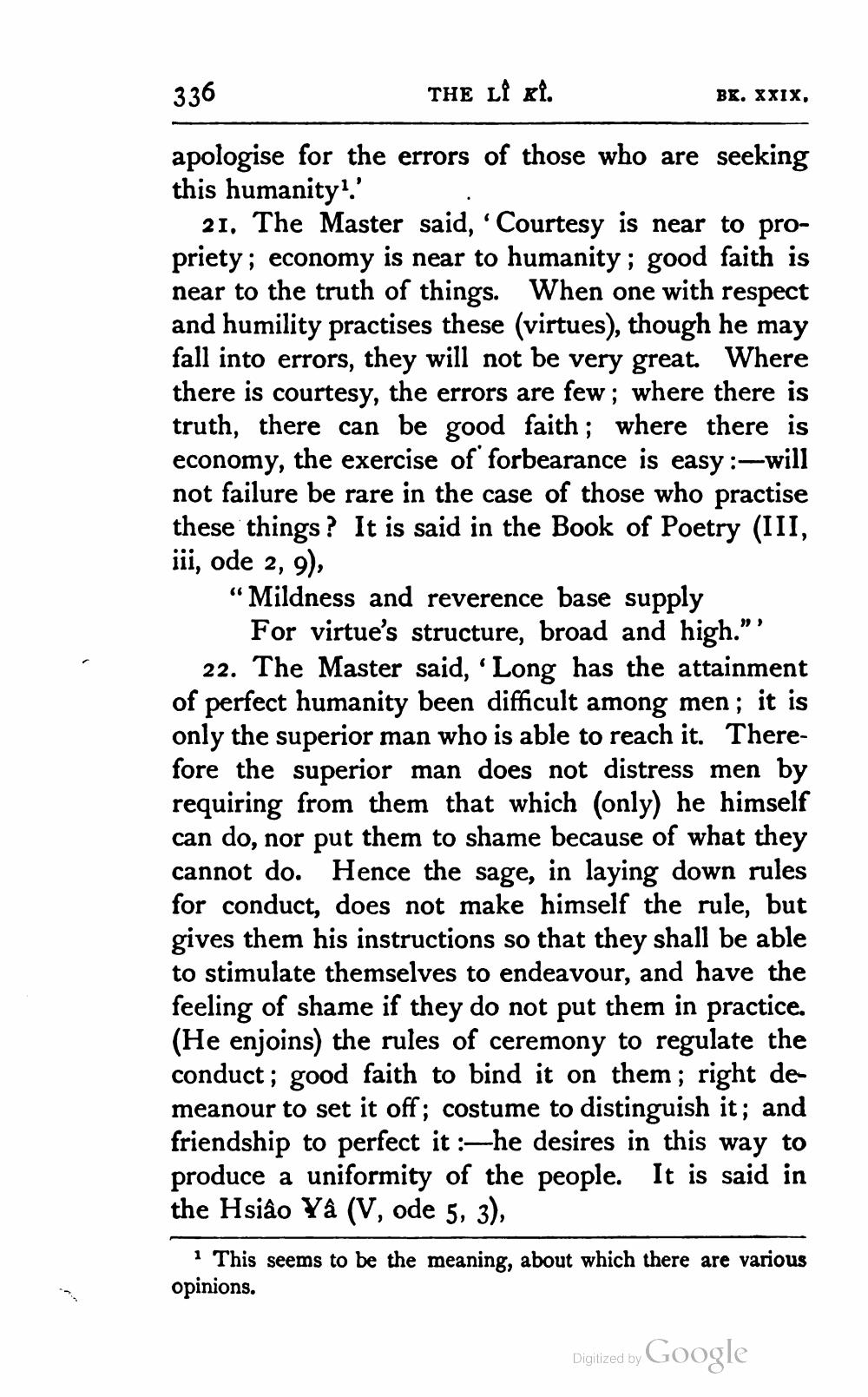________________
336
THE LÎ xt.
BK. XXIX,
apologise for the errors of those who are seeking this humanity?'
21. The Master said, 'Courtesy is near to propriety; economy is near to humanity; good faith is near to the truth of things. When one with respect and humility practises these (virtues), though he may fall into errors, they will not be very great. Where there is courtesy, the errors are few; where there is truth, there can be good faith; where there is economy, the exercise of forbearance is easy:-will not failure be rare in the case of those who practise these things ? It is said in the Book of Poetry (III, iii, ode 2, 9),
"Mildness and reverence base supply
For virtue's structure, broad and high.”' 22. The Master said, 'Long has the attainment of perfect humanity been difficult among men; it is only the superior man who is able to reach it. Therefore the superior man does not distress men by requiring from them that which (only) he himself can do, nor put them to shame because of what they cannot do. Hence the sage, in laying down rules for conduct, does not make himself the rule, but gives them his instructions so that they shall be able to stimulate themselves to endeavour, and have the feeling of shame if they do not put them in practice. (He enjoins) the rules of ceremony to regulate the conduct; good faith to bind it on them; right demeanour to set it off; costume to distinguish it; and friendship to perfect it :-he desires in this way to produce a uniformity of the people. It is said in the Hsiâo Ya (V, ode 5, 3),
1 This seems to be the meaning, about which there are various opinions.
Digitized by Google




